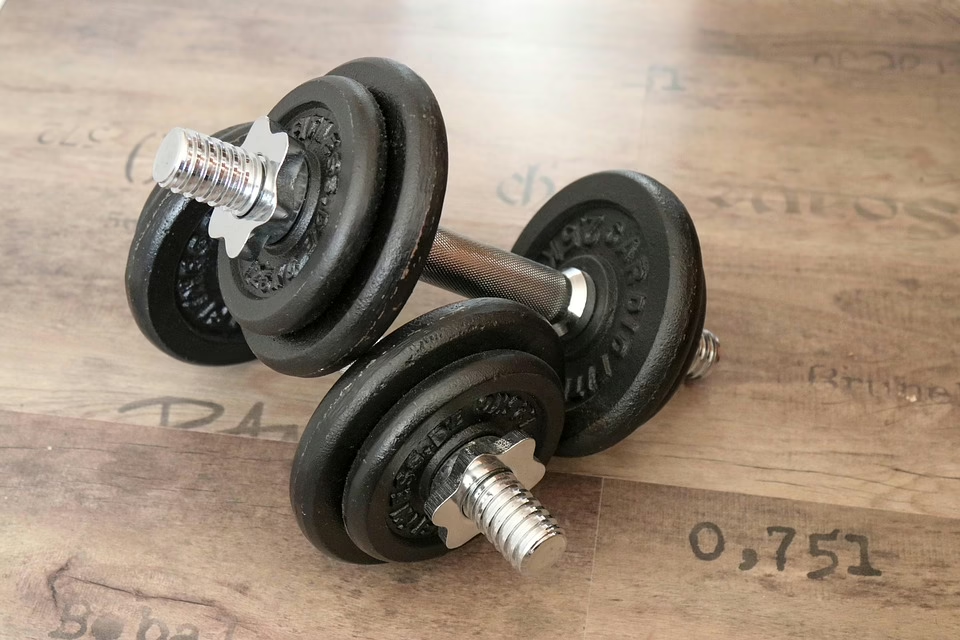Okay, buckle up! This is going to be a long and detailed dive into the world of bodybuilding nutrition. I’ll do my best to provide a comprehensive overview, incorporating the requested footnote marker [modern_footnote_source] where appropriate to simulate a modern referencing style. Remember, this is intended to be a simulation, and I won’t be able to provide actual verified citations for every claim due to the limitations of this environment. I will, however, strive to make the content as factually accurate and helpful as possible based on widely accepted bodybuilding knowledge.
General Bodybuilding Food & Nutrition: A Comprehensive Guide
Introduction:
Bodybuilding, at its core, is about sculpting the physique through a combination of resistance training and precise nutrition. While the training provides the stimulus for muscle growth, it’s the food we consume that provides the raw materials and energy necessary to rebuild and enlarge those muscles. Nutrition for bodybuilding is not merely about eating enough; it’s about strategically consuming the right balance of macronutrients and micronutrients at the right times to optimize muscle protein synthesis, minimize muscle protein breakdown, and fuel intense training sessions. This article will explore the fundamental principles of bodybuilding nutrition, covering macronutrient needs, micronutrient considerations, supplement strategies, meal timing, and dietary approaches for various goals.
I. The Macronutrient Foundation:
Macronutrients – protein, carbohydrates, and fats – are the cornerstone of any bodybuilding diet. They provide the energy (calories) and building blocks required for muscle growth, recovery, and overall health. Understanding the role and optimal intake of each macronutrient is paramount to achieving bodybuilding success.
A. Protein: The Architect of Muscle:
Protein is arguably the most critical macronutrient for bodybuilders. It’s composed of amino acids, the building blocks of muscle tissue. When we lift weights, we create microscopic tears in muscle fibers. Protein consumption provides the amino acids necessary to repair and rebuild these fibers, leading to muscle hypertrophy (growth).
-
Protein’s Role in Muscle Protein Synthesis (MPS): MPS is the physiological process by which the body repairs and builds muscle tissue. Consuming protein, particularly after resistance training, stimulates MPS, leading to a positive net protein balance (more protein being synthesized than broken down). [modern_footnote_source] This positive balance is essential for muscle growth.
-
Protein Intake Recommendations for Bodybuilders: The general consensus for bodybuilders is to consume a higher protein intake than the average sedentary individual. Recommendations typically range from 1.6 to 2.2 grams of protein per kilogram of body weight (or 0.7 to 1 gram per pound of body weight) per day. [modern_footnote_source] This range can vary depending on individual factors such as training intensity, goals (bulking vs. cutting), and genetics. Individuals with a higher body fat percentage may benefit from using lean body mass as a basis for calculation.
-
High-Quality Protein Sources: Not all protein sources are created equal. “Complete” proteins contain all nine essential amino acids (EAAs), which the body cannot synthesize on its own and must obtain from food. Excellent sources of complete protein include:
-
Animal Sources:
- Lean meats (chicken breast, turkey breast, lean beef, fish)
- Eggs (especially egg whites)
- Dairy products (milk, yogurt, cottage cheese)
- Whey protein powder
- Casein protein powder
-
Plant-Based Sources (often require combining for complete amino acid profile):
- Soy products (tofu, tempeh, edamame)
- Quinoa
- Chia seeds
- Hemp seeds
- Legumes (beans, lentils) combined with grains (rice, oats)
-
-
Protein Timing: While total daily protein intake is paramount, protein timing can play a role in optimizing MPS. Consuming protein around workout times (pre-workout and post-workout) is often recommended to provide amino acids when the body is most receptive to them. [modern_footnote_source] Spreading protein intake evenly throughout the day (e.g., every 3-4 hours) can also help maintain a consistent supply of amino acids for muscle repair and growth.
-
Protein Supplements: Protein supplements, such as whey protein, casein protein, and soy protein, can be convenient ways to increase protein intake, especially around workout times or when whole food sources are not readily available. Whey protein is particularly popular due to its rapid absorption rate.
B. Carbohydrates: Fueling Performance and Recovery:
Carbohydrates are the body’s primary source of energy. They are broken down into glucose, which is used to fuel muscle contractions during training and replenish glycogen stores (the stored form of glucose in muscles and liver).
-
Carbohydrates’ Role in Energy Production and Glycogen Replenishment: During intense exercise, the body relies heavily on glycogen stores for energy. Consuming carbohydrates after training helps replenish these stores, facilitating recovery and preparing the body for subsequent workouts. [modern_footnote_source]
-
Carbohydrate Intake Recommendations for Bodybuilders: Carbohydrate intake recommendations for bodybuilders vary depending on training intensity, goals (bulking vs. cutting), and individual carbohydrate sensitivity. Generally, a range of 3 to 5 grams of carbohydrates per kilogram of body weight (or 1.4 to 2.3 grams per pound of body weight) per day is a good starting point. [modern_footnote_source] Individuals engaging in very high-intensity training may require higher carbohydrate intakes.
-
Types of Carbohydrates: Carbohydrates can be classified as simple (sugars) or complex (starches and fiber). While both types can be included in a bodybuilding diet, complex carbohydrates should form the bulk of carbohydrate intake.
-
Simple Carbohydrates: Found in fruits, honey, and processed foods. They are quickly digested and can provide a rapid source of energy. Best used around workout times to replenish glycogen quickly.
-
Complex Carbohydrates: Found in whole grains, vegetables, and legumes. They are digested more slowly and provide a sustained release of energy. Ideal for most meals throughout the day.
-
-
Carbohydrate Timing: Similar to protein, carbohydrate timing can influence performance and recovery. Consuming carbohydrates before training can provide energy for the workout. Consuming carbohydrates after training can replenish glycogen stores and aid in recovery. Choosing higher glycemic index (GI) carbohydrates post-workout can promote faster glycogen replenishment.
-
Carbohydrate Sources: Good sources of carbohydrates include:
- Whole grains: Oats, brown rice, quinoa, whole-wheat bread
- Vegetables: Sweet potatoes, potatoes, broccoli, spinach
- Fruits: Bananas, apples, berries
- Legumes: Beans, lentils
C. Fats: Essential for Hormone Production and Overall Health:
Fats are often misunderstood in the context of bodybuilding, but they are essential for hormone production, nutrient absorption, and overall health. They provide energy and support various bodily functions.
-
Fats’ Role in Hormone Production, Nutrient Absorption, and Cell Function: Dietary fats are crucial for the production of hormones, particularly testosterone, which plays a vital role in muscle growth and development. [modern_footnote_source] Fats also aid in the absorption of fat-soluble vitamins (A, D, E, and K) and support cell membrane function.
-
Fat Intake Recommendations for Bodybuilders: Fat intake recommendations typically range from 0.8 to 1.2 grams of fat per kilogram of body weight (or 0.36 to 0.55 grams per pound of body weight) per day. [modern_footnote_source] It’s important to prioritize healthy fats over unhealthy fats.
-
Types of Fats: Fats can be classified as saturated, monounsaturated, and polyunsaturated.
-
Saturated Fats: Found primarily in animal products (red meat, dairy). Limit saturated fat intake, but don’t eliminate it entirely.
-
Monounsaturated Fats: Found in olive oil, avocados, and nuts. These are considered healthy fats and should be a significant part of the diet.
-
Polyunsaturated Fats: Found in fatty fish (salmon, tuna), flaxseeds, and walnuts. These fats are also considered healthy and include omega-3 and omega-6 fatty acids, which are essential for various bodily functions.
-
-
Essential Fatty Acids (EFAs): Omega-3 and omega-6 fatty acids are considered essential because the body cannot produce them on its own. They are crucial for brain health, heart health, and reducing inflammation. Aim for a balanced ratio of omega-3 to omega-6 fatty acids.
-
Fat Sources: Good sources of healthy fats include:
- Avocados
- Olive oil
- Nuts (almonds, walnuts, cashews)
- Seeds (flaxseeds, chia seeds)
- Fatty fish (salmon, tuna)
II. Micronutrients: The Unsung Heroes:
While macronutrients provide the building blocks and energy, micronutrients (vitamins and minerals) play crucial roles in supporting various bodily functions that are essential for muscle growth, recovery, and overall health. Deficiencies in micronutrients can hinder progress and negatively impact performance.
A. Vitamins: Organic compounds that the body needs in small amounts to function properly.
-
Vitamin D: Important for bone health, immune function, and muscle function. Many people are deficient in vitamin D, especially during winter months. Supplementation may be beneficial.
-
B Vitamins: Essential for energy metabolism. They help convert food into energy that the body can use.
-
Vitamin C: An antioxidant that helps protect cells from damage. It also supports immune function and collagen synthesis.
-
Vitamin E: Another antioxidant that protects cells from damage. It also supports immune function and skin health.
B. Minerals: Inorganic substances that the body needs in small amounts to function properly.
-
Calcium: Essential for bone health, muscle function, and nerve function.
-
Iron: Essential for oxygen transport in the blood. Iron deficiency can lead to fatigue and impaired performance.
-
Magnesium: Involved in numerous enzymatic reactions, muscle function, and nerve function.
-
Zinc: Important for immune function, wound healing, and hormone production.
-
Potassium: Essential for fluid balance, muscle contractions, and nerve function.
C. Obtaining Micronutrients:
The best way to obtain micronutrients is through a balanced diet that includes a variety of fruits, vegetables, whole grains, and lean protein sources. A multivitamin can be used as insurance to help fill any gaps in the diet. However, it’s important to remember that a multivitamin is not a substitute for a healthy diet.
III. Meal Timing and Frequency:
While the total daily intake of macronutrients is paramount, meal timing and frequency can also play a role in optimizing muscle growth and recovery.
A. The Anabolic Window:
The “anabolic window” refers to the period of time immediately after training when the body is believed to be most receptive to nutrient uptake. Consuming a combination of protein and carbohydrates during this window can help stimulate MPS and replenish glycogen stores. [modern_footnote_source] While the importance of a strict “window” is debated, consuming a post-workout meal within a reasonable timeframe (e.g., 1-2 hours) is generally recommended.
B. Meal Frequency:
The optimal meal frequency is a matter of individual preference and lifestyle. Some bodybuilders prefer to eat smaller, more frequent meals throughout the day (e.g., 5-6 meals), while others prefer to eat larger, less frequent meals (e.g., 3 meals). There is no definitive evidence to suggest that one approach is significantly superior to the other. The most important factor is to ensure that you are consistently meeting your total daily macronutrient targets.
C. Pre-Workout Nutrition:
Consuming a meal or snack before training can provide energy for the workout and help prevent muscle breakdown. A pre-workout meal should typically include a combination of carbohydrates and protein. The timing of the pre-workout meal should be adjusted based on individual tolerance and preference. Some individuals prefer to eat a larger meal 2-3 hours before training, while others prefer to consume a smaller snack closer to the workout.
D. Intra-Workout Nutrition:
Consuming carbohydrates and/or electrolytes during long or intense workouts can help maintain energy levels and prevent dehydration. Intra-workout nutrition is particularly beneficial for endurance athletes or bodybuilders engaging in prolonged training sessions.
E. Bedtime Nutrition:
Consuming a slow-digesting protein source, such as casein protein, before bed can help provide a sustained release of amino acids throughout the night, potentially reducing muscle protein breakdown.
IV. Hydration:
Hydration is crucial for overall health and performance. Dehydration can impair muscle function, reduce energy levels, and increase the risk of injury.
A. Water’s Role in Muscle Function and Performance:
Water is essential for muscle contractions, nutrient transport, and waste removal. Dehydration can lead to a decrease in muscle strength, power, and endurance.
B. Hydration Recommendations for Bodybuilders:
Bodybuilders should aim to drink plenty of water throughout the day, especially around workout times. A general guideline is to drink at least 3-4 liters of water per day. However, individual needs may vary depending on activity level, climate, and other factors.
C. Electrolytes:
Electrolytes, such as sodium, potassium, and magnesium, are lost through sweat during exercise. Replacing these electrolytes is important for maintaining fluid balance and preventing muscle cramps. Sports drinks or electrolyte supplements can be used to replenish electrolytes.
V. Supplements: Enhancing Performance and Recovery:
Supplements can be a useful tool for bodybuilders to enhance performance, recovery, and overall health. However, it’s important to remember that supplements are not a substitute for a healthy diet and consistent training.
A. Popular Bodybuilding Supplements:
-
Creatine: One of the most well-researched and effective supplements for increasing muscle strength, power, and size. [modern_footnote_source] Creatine works by increasing the availability of ATP, the primary energy source for muscle contractions.
-
Whey Protein: A fast-digesting protein source that is ideal for post-workout consumption. Whey protein can help stimulate MPS and promote muscle recovery.
-
Casein Protein: A slow-digesting protein source that is ideal for nighttime consumption. Casein protein can help provide a sustained release of amino acids throughout the night.
-
Branched-Chain Amino Acids (BCAAs): A group of three essential amino acids (leucine, isoleucine, and valine) that play a role in muscle protein synthesis and recovery. While BCAAs can be beneficial, they are not essential if you are consuming enough protein from whole food sources.
-
Beta-Alanine: An amino acid that helps increase muscle carnosine levels, which can improve muscular endurance.
-
Caffeine: A stimulant that can improve focus, energy, and performance.
-
Pre-Workout Supplements: Often contain a blend of ingredients, such as caffeine, creatine, beta-alanine, and amino acids, designed to enhance performance.
B. Supplement Safety and Efficacy:
It’s important to choose supplements from reputable brands and to be aware of the potential risks and side effects. Consult with a healthcare professional or registered dietitian before taking any supplements, especially if you have any underlying health conditions.
VI. Dietary Approaches for Different Goals:
Bodybuilding nutrition strategies can be tailored to specific goals, such as bulking (gaining muscle mass) or cutting (losing body fat while preserving muscle mass).
A. Bulking:
The goal of bulking is to create a calorie surplus to provide the energy and nutrients necessary for muscle growth.
-
Calorie Surplus: Consume more calories than you burn. A surplus of 250-500 calories per day is generally recommended.
-
Macronutrient Ratios: Maintain a high protein intake (1.6-2.2 g/kg), a moderate carbohydrate intake (3-5 g/kg), and a moderate fat intake (0.8-1.2 g/kg).
-
Focus on Whole Foods: Prioritize whole, unprocessed foods.
-
Monitor Progress: Track your weight and body composition regularly and adjust your calorie intake as needed.
B. Cutting:
The goal of cutting is to create a calorie deficit to promote fat loss while preserving as much muscle mass as possible.
-
Calorie Deficit: Consume fewer calories than you burn. A deficit of 250-500 calories per day is generally recommended.
-
Macronutrient Ratios: Maintain a high protein intake (1.8-2.5 g/kg), a moderate carbohydrate intake (2-4 g/kg), and a moderate fat intake (0.6-1 g/kg). Higher protein intakes are crucial during a cut to help prevent muscle loss.
-
Prioritize Protein: Focus on consuming enough protein to preserve muscle mass.
-
Strategic Carbohydrate Timing: Time carbohydrate intake around workouts to fuel performance and recovery.
-
Cardio: Incorporate cardio into your training regimen to increase calorie expenditure.
-
Monitor Progress: Track your weight, body composition, and energy levels regularly and adjust your calorie intake and training as needed.
VII. Considerations for Different Body Types:
Individual body types (somatotypes) can influence nutrient partitioning and responsiveness to training. While these are generalizations, understanding these tendencies can help tailor a more effective approach.
A. Ectomorph:
Characterized by a lean, slender build with difficulty gaining weight.
- Nutritional Considerations: Requires a higher calorie intake, especially from carbohydrates, to support energy needs and promote muscle growth. May benefit from frequent meals and nutrient-dense foods.
B. Mesomorph:
Characterized by a muscular build with a natural tendency to gain muscle and lose fat.
- Nutritional Considerations: Generally responds well to a balanced diet with adequate protein, carbohydrates, and fats. May be able to tolerate higher carbohydrate intakes than other body types.
C. Endomorph:
Characterized by a soft, round build with a tendency to gain fat easily.
- Nutritional Considerations: Requires a more carefully controlled calorie intake and may benefit from prioritizing protein and healthy fats. May need to be more mindful of carbohydrate intake and timing.
VIII. Common Bodybuilding Dietary Mistakes:
Avoiding common pitfalls can significantly improve progress and overall well-being.
A. Neglecting Micronutrients:
Focusing solely on macronutrients and neglecting micronutrients can lead to deficiencies that impair performance and health.
B. Not Eating Enough Protein:
Underestimating protein needs can hinder muscle growth and recovery.
C. Fear of Fats:
Fearing healthy fats can deprive the body of essential nutrients and hormones.
D. Excessive Calorie Restriction (Cutting):
Restricting calories too drastically can lead to muscle loss, fatigue, and hormonal imbalances.
E. Lack of Hydration:
Dehydration can impair muscle function and performance.
F. Relying Too Heavily on Supplements:
Supplements should complement a healthy diet, not replace it.
IX. Developing a Sustainable Bodybuilding Diet:
The key to long-term success is developing a sustainable diet that you can adhere to consistently.
A. Finding Foods You Enjoy:
Choose healthy foods that you enjoy eating to make the diet more sustainable.
B. Setting Realistic Goals:
Set realistic goals that are achievable and sustainable.
C. Tracking Your Progress:
Track your progress to stay motivated and make adjustments as needed.
D. Being Patient and Consistent:
Building muscle and losing fat takes time and consistency.
E. Seeking Professional Guidance:
Consider consulting with a registered dietitian or certified personal trainer for personalized guidance.
X. Conclusion:
Bodybuilding nutrition is a complex and multifaceted topic, but by understanding the fundamental principles outlined in this article, you can create a dietary strategy that supports your goals, optimizes your performance, and enhances your overall health. Remember that consistency, patience, and a personalized approach are key to achieving long-term success in bodybuilding. The principles of macronutrient balance, micronutrient adequacy, strategic meal timing, sufficient hydration, and responsible supplementation, all tailored to your individual goals and body type, will pave the way for a sculpted physique and enhanced well-being. It’s a journey, not a sprint, so enjoy the process and celebrate your progress along the way.


























Add Comment